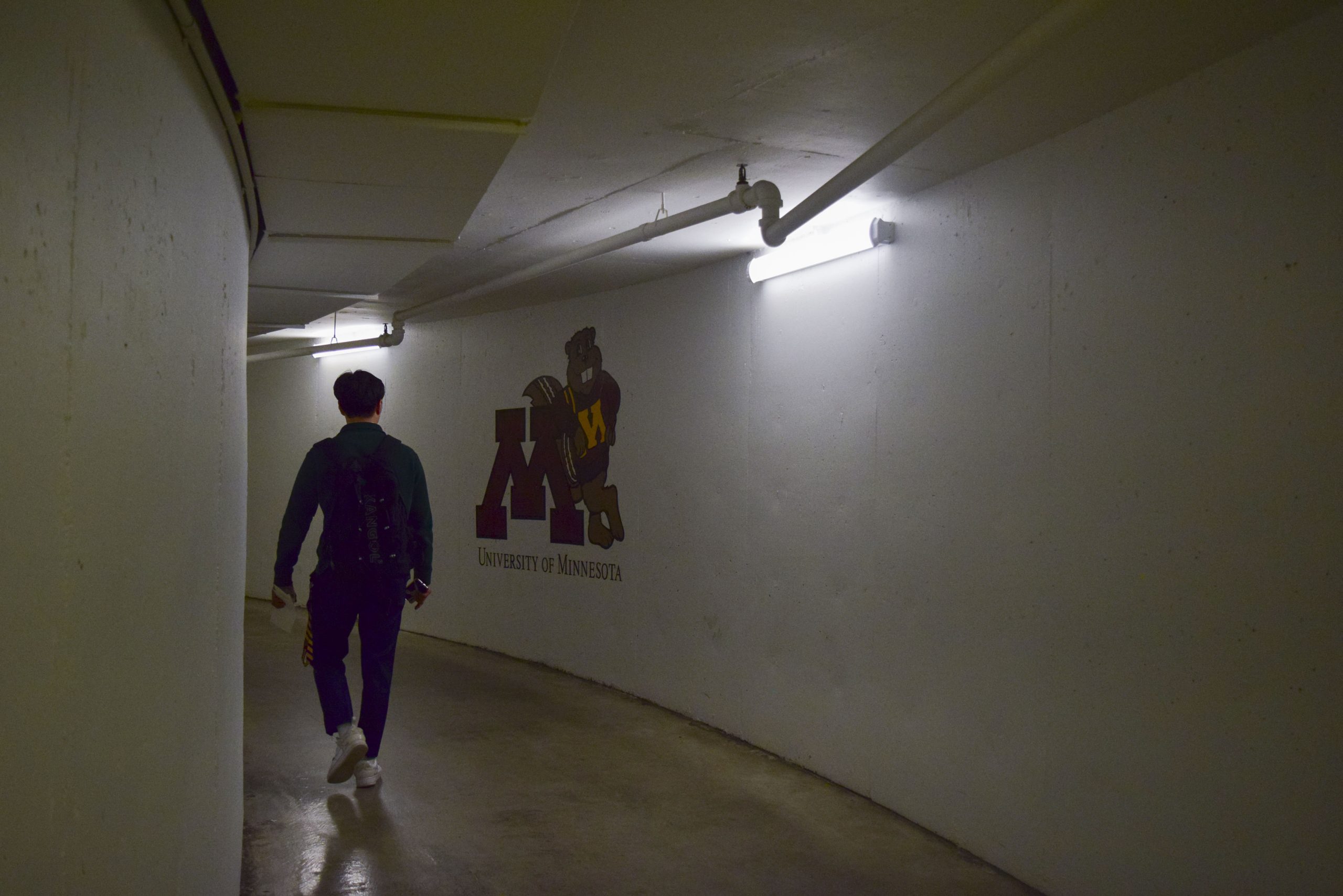University of Minnesota computer science senior Timothy O’Brien has converted large sums of money into Bitcoin, a controversial and volatile digital currency. He says he worries about the instability of his investments every day.
Technologically and financially skilled students are getting involved with new investments in the global marketplace, and some say they’ve been lucky so far.
“The people that have taken advantage of it are people who aren’t really that wealthy but who are technically savvy, who are willing to take a risk on kind of a libertarian ideal or economic ideal that they align themselves with,” said University of Pennsylvania student and St. Paul native Matthew Buechler, who has Bitcoin.
A mysterious false identity called Satoshi Nakamoto created the idea for Bitcoin in a 2009 research paper. Nakamoto described it as “a purely peer-to-peer version of electronic cash [that] would allow online payments” without using a bank.
“You buy at your own risk,” University corporate securities law professor Richard Painter said. “For hundreds of years, people have paid hundreds of dollars for something that doesn’t have a high inherent value.”
Bitcoin is different from past attempts at Internet currency because no government regulates it, no one owns it and transactions are anonymous — to an extent.
“It would be really nice to have a form of digital currency that is accepted everywhere around the world,” O’Brien said. “That’s what I thought was so cool.”
Only 21 million bitcoins will ever exist, so those who buy directly from Bitcoin need to “mine” them. Miners need large, expensive servers and computer science savvy to solve increasingly difficult algorithms and earn coins. By making the computer algorithms harder, the currency regulates its own value.
“I wouldn’t sell a bitcoin for less than what I was mining with,” Buechler said, “so that’s where its inherent value comes from.”
O’Brien started buying bitcoins in 2010, when they were just beginning. He recalled that at the time, he thought $5 was expensive for a bitcoin.
On Nov. 30, the currency hit its highest worth when one bitcoin was valued at $1,203 — a more than a tenfold increase in less than five months. Its value on Monday was $895 per coin, according to Blockchain, a website that tracks the currency’s value.
For Bitcoin to be a true currency, Painter said, its drastic fluctuations in value would need to end.
“Right now, it just seems like people buying in to sell it to someone else who wants it so they make a profit, and that can only go on for so long,” he said.
Bitcoin itself acknowledges that investing means taking a risk. Its website warns users to never store money in bitcoins that they can’t afford to lose.
“I don’t know if bitcoins are going to be the next kind of currency someday,” O’Brien said. “But I think there will be some kind of digital currency,”
Bitcoin’s lack of regulation could lead to the bubble bursting, Painter said, so he advised students to learn about different sectors before investing.
“Educate yourself first, and make your investment decisions based on a firm base of knowledge,” he said.
Despite the asset’s uncertainty, about 1,700 businesses worldwide currently accept bitcoins, including two in Minneapolis, according to Coinmap.
One of these, music and electronic arts school Slam Academy, just began accepting bitcoins in November, said Vice President of Marketing and Promotions Leon Jaworski.
“It’s very, very new to us. We set it up kind of as a way to offer an alternative method of payment,” he said. “To us, it’s just another form of electronic payment that we wanted to open up to, to stay on the cutting edge of things.”
But to some, the anonymous nature of the currency is troubling.
Although a record of every Bitcoin transaction is available to the public online, Buechler said some miners attempt to trade illegal assets in bitcoins by using multiple encryptions and other methods to hide their networks.
But Painter said the practice itself isn’t illegal because it’s more of a barter system than a currency.
“There’s nothing illegal about it,” he said. “The problem is when it gets into fraud — when people are putting in fraudulent trades and manipulating the market.”
O’Brien said fraudulent activity only worries him if it affects Bitcoin’s value.
“So far, it’s been free money for me,” he said. “So I’m not that worried.”
















